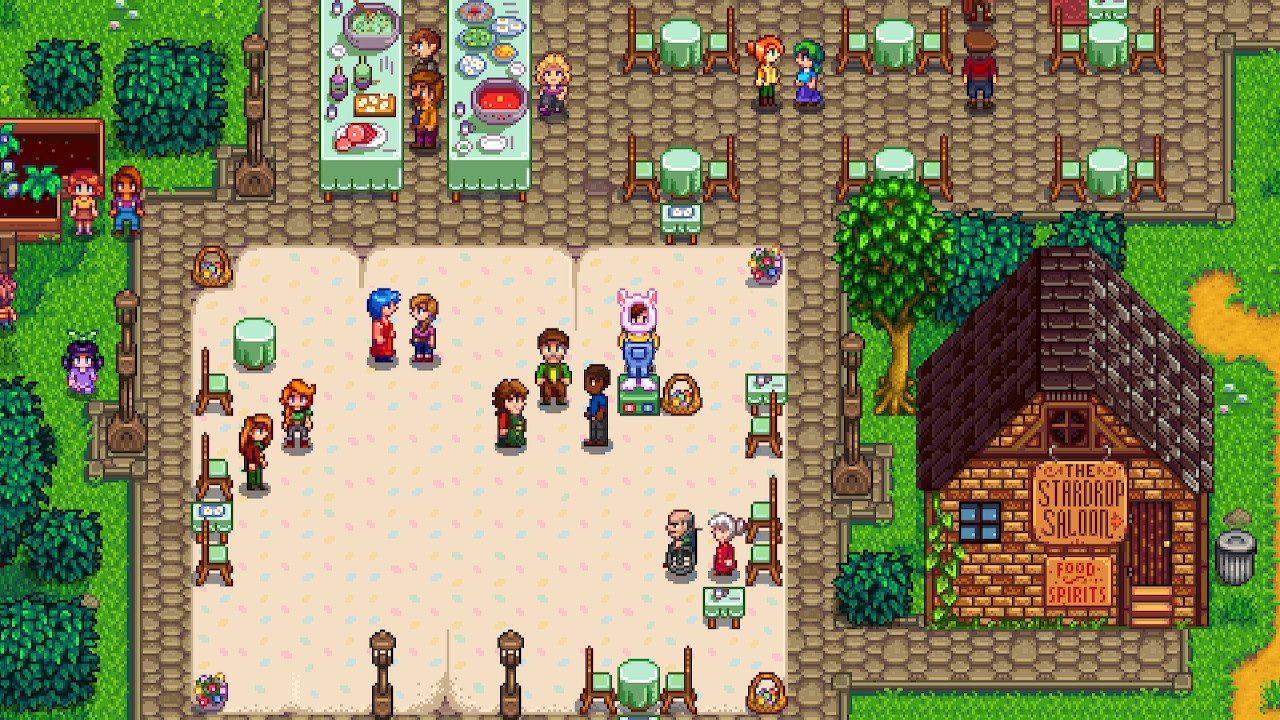An indie juggernaut that won’t leave our collective consciousness
Where do I start with Stardew Valley? Writing about it in any way feels like a huge undertaking — from my own deeply personal experiences to its being the unofficial face of indie game success stories, I could probably fill volumes.
But in an attempt to hone in my focus, I wanted to start with something that amazes me every time I see it — the fact that five years after its release, an indie game is still making the news on a weekly basis, despite the fact that it’s technically not live service.
Just last week, Stardew Valley was all over the headlines for its new availability on Game Pass starting this fall. I’m honestly not surprised by this in the slightest, because it seems like a perfect candidate to fit the Game Pass formula. It’s the kind of game that you can pick up at any point and have a good time. I already own Stardew on four different platforms, and if I had an Xbox One I’d likely play it on there, too.

Then there’s the fact that even when the news has nothing to do with Stardew itself getting an update or coming to new platforms, its name is still evoked by games journalists everywhere. Every time a new indie game comes out that has an 8-bit art style, has a farming mechanic, or vaguely resembles one aspect of Stardew Valley in any possible way, everyone is explaining what this new game is like based on how similar it is or isn’t to the legendary farming and community sim.
I think in the same way that any and every game that had remotely difficult gameplay got compared to Dark Souls to the point of beating a dead horse, the exact same thing is happening with Stardew. It feels slightly unfair to these new games that they always have to be fielded through the lens of another game, but I understand why they do it — with something that’s as widespread and well-known as Stardew, it’s an easy point of comparison to use to quickly get someone to understand what they’re in for.

For as wildly popular as Stardew Valley is, I’m honestly shocked it has stayed relatively contained to the base game. Even with the addition of the co-op mode, basically the only thing that changes is having more than one player character in the mix. In order to stay relevant, a lot of franchises have to add seemingly endless amounts of DLC, or spin off into other genres entirely — Minecraft is a perfect example of that.
But Stardew has managed to achieve the same level of ubiquity without straying too far from its developer’s original vision. You also have games like Undertale, but its gameplay, subject matter, and style are more niche and off-the-wall, so it hasn’t been able to break into the mainstream in quite the same way.
So many games these days, especially AAA, struggle with having too many cooks in the kitchen during their development, and the final product ends up being a sludge of overused tropes and mechanics of what executives think will sell. I feel like most people know this already, but if for some reason you missed it — the entirety of Stardew Valley was made by one guy, who goes by the screen name ConcernedApe. According to the chapter devoted to his work on making the game in Jason Schrier’s book Blood, Sweat, and Pixels: The Triumphant, Turbulent Stories, it nearly killed him because it was so grueling.

While it hurts my heart to know he struggled so much to make Stardew happen (trust me, I’ve been there), I don’t think it was all in vain. Because he was the only one working on it, he didn’t ever have to compromise his vision. To me, that shines through when I play the game — every mechanic and interaction feels like it has its own personality, which is what draws me into the experience time and time again.
This points to what made Stardew Valley special in the first place, and the reason I think it will never truly go away — the fact that we as players can really feel the passion that continues to go into this project to this day. Of course, I have to give credit to the modders, YouTubers, and streamers who are keeping Stardew at the forefront of our minds, but honestly I feel like the game’s natural charm is so much of what has made it such a huge success.

At risk of sounding dramatic, I see Stardew Valley as standing as a symbol of every prospective game dev’s dream: working tirelessly on a passion project, for it then to be met with nearly unanimous praise and blossom into a multi-million-dollar franchise.
It’s a game that pays homage to the nostalgia of early farming sims, while at the same time putting a fresh spin on the genre. That sense of earnestness is hard to come by in an industry full of cynicism, and to me, that’s the number one reason why Stardew Valley will continue to thrive for years to come.








